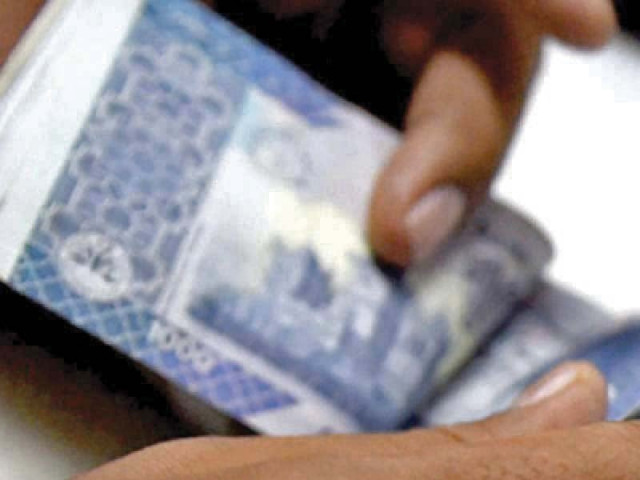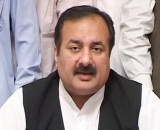Is the era of low interest rates coming to an end?
Fiscal stimulus jacks up Pakistan’s GDP but also contributes to demand-side inflation

Global low interest rates have been a new normal for years and real interest rates have trended negative since the first Covid wave.
But now it seems that despite fears of the Omicron variant impacting the world economy, the era of low interest rates is finally over.
The US Federal Reserve has announced three planned interest rate hikes this year – starting from March 2022 – and will be slowing down its purchase of billions of dollars of bonds.
To control an inflation rate of above 4.2%, the Bank of England has already increased its policy rate by 25 basis points before Christmas. National Australia Bank increased its fixed-interest mortgage rates twice in December – signalling that a fundamental change in attitudes to inflation and a return to the conventional economic approaches is imminent.
However, many economists argue that increasing the policy rates won’t combat inflation. It won’t change LNG prices; it won’t affect crude oil prices and it won’t restore supply chains at once.
It won’t clear the semiconductor backlog neither will it end the global fertiliser shortages.
Apparently, the policy rate is the only weapon in our arsenal, as Abraham Maslow has said: “If the only tool we have is the hammer (of policy rates), we tend to see every problem as a nail.”
Central banks around the world continue to see the problem space with a reductionist approach instead of a holistic lens. Scrapping the US-Iran deal and fuelling Sino-US trade wars have a lot to do with supply-side shocks and hence, much of the inflation.
For example, after sanctions Iran is selling crude oil to Beijing at a considerable discount as compared to the ICE Brent price and Chinese refineries have imported more than 600,000 barrels per day from Tehran in November alone.
Since China is one of the biggest importers of oil, this leaves less oil to be purchased from Saudi Arabia and other OPEC members.
Fearing depressed demand, OPEC can’t increase its production much – though they haven’t cut down their production increase targets for January and February 2022.
At the same time, most of the problems in supply chains trace back to China and Taiwan, and if they are not corrected soon, it means that the West can’t source low-cost products from China as much as they want to.
This heavy dependence on Chinese economy is often overlooked by the Western economists and any international diplomatic pressure on the Chinese under the pretext of climate goals will only add more stress to its already strained economy.
The Evergrande scandal has shown that Beijing is not much eager to bail out the $300 billion debt-ridden property giant – resulting in property developers slashing home prices to offload housing inventories for making interest payments.
As realty accounts for 25% of the Chinese economy, China’s central bank has finally cut interest rate for the first time in two years in December to stimulate growth amid fears of depression.
Chinese junk-bond yields remain high – indicating that “all is not well” in China and these effects continue to be felt worldwide.
In such a scenario, fiscal stimulus given by the US and other Western countries has only worsened the problem.
Thanks to the generous stimulus cheques handed out during the first Covid-19 wave, the stay-at-home workforce had increased the disposable income at their hand, which they used to order new gadgets, laptops, TVs, gaming consoles, and later cars – all of which created a supply shock for assembly plants in China and for semiconductor fabs in Taiwan.
Later, taking benefit of the negative real interest rates, Americans started to dump their savings in housing – leading to asset price inflation.
In a way, this housing bubble has been inflated by Fed’s fiscal stimulus and low interest rates, so this recent inflation overall is a mix of both, ie supply-side and demand-side inflation.
Feds are aware of this but removing the stimulus at once will slow down the US economy. However, the supply-side inflation is hurting already so the Fed is all set to move from the full stimulus mode to the full hawkish mode overnight for stopping cheap mortgages from inflating real estate values any further.
Pakistan’s case
If we draw parallels with Pakistan, the story has been very similar. Tax amnesties for the realty sector, low interest rates till November and the Naya Pakistan Housing Scheme, which has injected Rs80 billion into the housing market, are all some form of fiscal stimulus.
Residential mid-range property market is already overheated, and in some areas, we see price appreciation of over 100% since 2020.
Similarly, Pakistan’s social security and youth development schemes such as health card, the Kamyab Jawan and Ehsaas programmes have injected millions into the economy – thanks to low interest rates and availability of cheap money.
This stimulus has shown in our GDP numbers, but it has also contributed to demand-side inflation.
With central banks worldwide all set to increase interest rates, capital can fly out if we stick to a lower policy rate in the long run. It is obvious that another policy rate hike is on the cards, especially when real interest rate remains negative.
In a nutshell, it is true that higher interest rates won’t fix supply-side inflation problems, which are all linked with supply chains originating from the Asia-Pacific, but increasing the rates will make cheap stimulus expensive for governments and will hence cool down the overheated housing markets.
The era of cheap money to stimulate growth, it appears, may be gone for good now.
The writer is a Cambridge graduate and is working as a strategy consultant
Published in The Express Tribune, January 10, 2022.
Like Business on Facebook, follow @TribuneBiz on Twitter to stay informed and join in the conversation.



















COMMENTS
Comments are moderated and generally will be posted if they are on-topic and not abusive.
For more information, please see our Comments FAQ